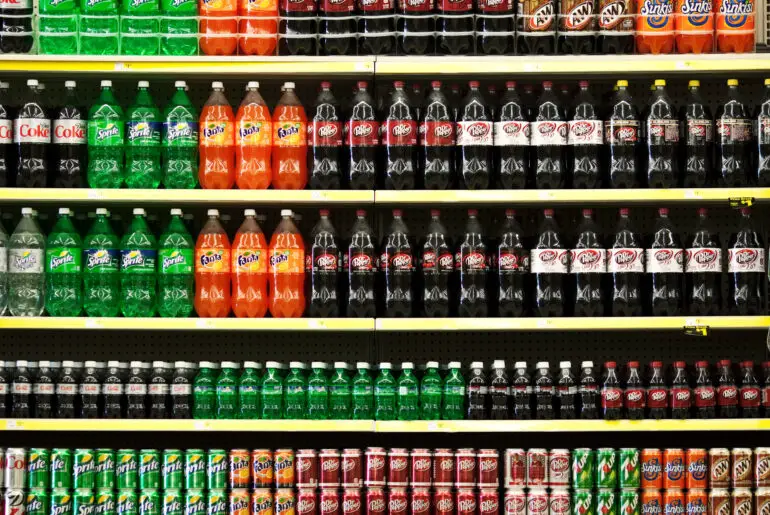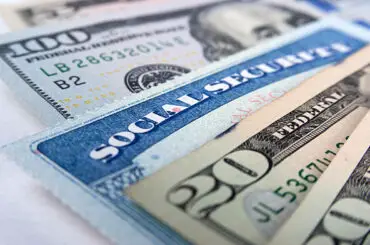Information presented on this web page is intended for informational and educational purposes only and is not meant to be taken as legal, financial, investment or tax advice. We do not accept any responsibility for any trading or investment related losses. Please review our disclaimer on before taking action based upon anything you read or see.
Setting up a successful soft drink business takes time and money. However, the production and distribution of soft drinks are similar to that of other consumer products. Soft drink entrepreneurs must fully understand the relationship between consumers, soft drinks, and factors such as taste. Health awareness and brand perception can influence this relationship.
Now comes the hard part: actual brand development. It’s a time-consuming process with many moving parts. You have to consider financing, formulation, ingredient sourcing, packaging design, distribution, etc. Let’s learn in detail how to start a soft drink business.
How to Start a Soft Drink Business
Identification of groups by region and population
The key demographic group; is the group of people who are likely to be interested in your beverage. Target a specific type of consumer to create the ideal formula and marketing campaign to reach them.
After defining your target market, investigate their purchasing habits: where do they buy soft drinks? When and how do they drink soft drinks? What soft drinks do they now consume, and what entices them to do so? What is the best aspect of the soft drink industry?
Use different market research methods, such as focus groups, surveys, and field studies.
There you meet with the project manager and discuss the vision for the new beverage brand. Once we have the vision of the desired flavor, we send our beverage design team to the lab to begin the initial formulation.
Then we invite you to a tasting. Chances are you’ll want to improve the flavor, so we send our team back to the design studio to refine the flavor. We repeat this process until you are completely satisfied.
Register your brand and product
You can patent your product to prevent other companies from making the same drink and selling it as your own. A trademark or copyright is not the same as a patent. Because your soft drink companies have a distinct composition, you may prevent it from being imitated by submitting a composition patent application to the United States Patent and Trademark Office.
Make sure you know what a patent is and what it covers. A patent is not valid forever, on soft drink brands and so on. Once it expires, anyone can copy (legally) your product. You must also disclose your recipes and other information. That’s why many companies, such as Coca-Cola, KFC, or Twinkies, keep their inventions as trade secrets instead of patenting them.
It is easier to protect a trade secret than to file a patent application. There are no forms to fill out and no recipes to disclose. However, we recommend signing non-disclosure agreements with suppliers, employees, and business partners.
You will also create other intellectual property for your soft drinks, such as mascots or symbols. Protect them with a trademark registered with the same federal agency.
Processes and necessary planning
Before setting up a beverage manufacturing business, think about the type of business you want to set up and your capital. So, if you have a truck and you like to sell, you could become a beverage distributor.
On the other hand, you can start an energy drink company with a great idea for unique energy drinks. You can also open a brewery, create your brand of soft drinks, fruit juices, cold drinks or enter the world of mixed cocktails.
All you have to do is find a beverage company that perfectly suits your needs and provides the ingredients you need for continuous production.
Every company in the beverage world is subject to different laws. Find out what permits are required before starting your business. Setting up a small beverage cart in a park may require a beverage license.
If you want to sell craft beverages, the health authority must inspect your production plant. If you want to open a brewery with a bar, you need a liquor license. Ask about the legality of your business and wait for clarification.
This includes registering your business with the authorities, setting up a tax structure, and taking out the necessary insurance (you will probably need at least liability insurance).
Labeling
It is important to provide accurate information about ingredients and nutritional or other values. Otherwise, you may get into trouble with the Food and Drug Administration. Of course, it can get complicated if you’re not sure which label to use (or when and where to use it).
The procedures are very different for alcoholic products, complying with the Alcohol and Tobacco Tax and Trade Bureau (TTB) rules.
Labeling requires knowing the definitions of legal terms such as “ingredients” and understanding the difference between classifications such as “natural” and “artificial” flavors. But even then, it’s not enough to consult a dictionary to figure it all out on your own.
Also, be sure to present the information in the manner prescribed by the FDA, TTB, or the agency responsible for your region, state, or country. For example, do you know what font size to use in the scorecard? Or in what order to list ingredients? What about rules for the inclusion of colorings, chemical preservatives, or even carbonated water?
Whether it’s acceptable to use synonyms for certain nutrients or how to indicate the amounts of certain ingredients – these are all little things your compliance team can help you with, or at least check that the instructions are being followed exactly and correctly.
Don’t risk your tasty drink not selling because you put the wrong source on the label. You can put your name on the label. Let the experts help you get it right the first time.
Establish relationships with distributors.
The last step on the road to a successful soft drink business is delivering the drinks to consumers. First, you need to get the beverages on the shelves, and then you need to introduce them to distributors and wholesalers.
Don’t just think about where the end-user buys the beverage in a bottle: think about bars, restaurants, hotels, and cafes where your customers can take their drink from a vending machine or order it from a waiter. Establish relationships with the retailers that supply these outlets.
Once the beverages are on the shelves, your job is not over. But you still need to promote it and do this. It would help if you defined the marketing strategy that best suits your target group. This could mean running coupon campaigns, using social media, or collaborating with a snack or alcoholic beverages manufacturer.
Frequently Asked Questions
How much does it cost to start a soft drink business?
Estimated costs depend on the number of ingredients you can process yourself. Still, you can expect to pay at least $20,000 for a professional formula and perhaps as much as $80,000 for a relatively small start-up, just for your initial business plans.
Learn how much a business plan cost.
How do I create my beverage brand?
After defining your type of soft drink, you must comply with all government requirements to complete the paperwork to register your trademark.
Can I sell homemade beverages?
Under the California Home Grown Food Act, you can sell your products at beverage markets and farmers’ and other fairs, at your home, at special events, and virtually anywhere in California, as long as you or your employees sell them directly to consumers.
Is the soft drink business profitable?
Yes, very profitable; according to beverage industry statistics, the soft drink segment is expected to reach $742.235 billion by 2021. It is also expected to grow at a CAGR of 5.41% (2021-2025).
Is a beverage company profitable?
With proper management and beverages with flavors that are receptive to customers, it is very profitable to be a beverage company.
Do I need a license to sell soft drinks in the U.K.?
If you sell food and beverages, you must also have a food hygiene certificate.
Why is the soft drinks industry so profitable?
With little competition and strong market demand, the soft drinks companies in the industry can achieve high sales figures, which bring in large profits for the soft drinks companies the industry.
How can I become a Coca-Cola distributor?
Contact Coca-Cola to find out where they are looking for new distribution and sales partners. Of course, your local distributor may have an exclusive contract with a business partner in your area. Or you may be looking for a partner for a smaller range of Coca-Cola products, such as Golden Dome coffee.
Read More: How Starting a Business with a Foreign Partner
What are good business ideas?
Without a doubt, the beverage business is one of the best ideas for entrepreneurship and success.
Bottom Line
We have all the necessary information to decipher; how to start a soft drink business. Using the material provided appropriately and concisely will lead you on the road to success.
With an elaborated plan and a correct strategy, the soft drinks business will allow you to start walking along a path of sweet fruits. It is necessary to have detailed criteria and elaboration accompanied by effective planning. Hand in hand, the informative supply that we have provided to start in this competitive commercial world.





